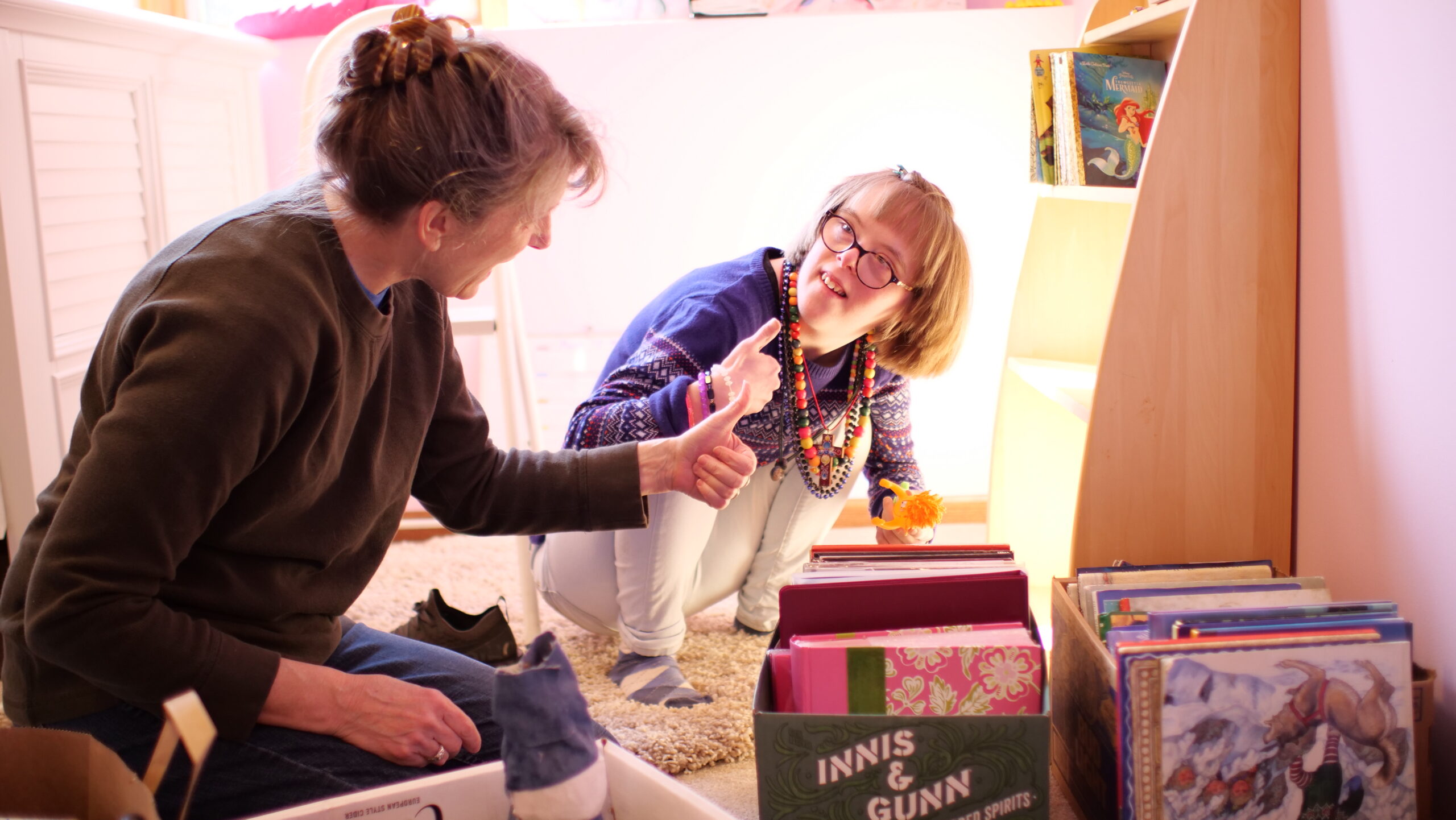Finding a Living Option that Meets Your Needs
Home is where the heart is. Deciding on what home could look like can be daunting. Take a look at some potential options that could meet your family’s needs.
Living with Family
Living with family is very common for adults with intellectual and developmental disabilities (IDD). The person with IDD may continue to live with parents or be supported by other family members. Ongoing support from familiar folks, in a comfortable environment, provides a sense of security for everyone. Several types of supports can help make this a better option:
In-Home Services
Having a qualified caregiver provide one-on-one staffing for your loved one can provide learning opportunities and connection for the adult who needs support. It can also give you time and space to run errands, decompress, attend appointments or whatever takes you away from home. These services might be called CDCS, waivered or PCA services, or in-home supports.
In-Home Respite
In-home respite includes regular, planned opportunities for you to get a break and your loved one to be in their own space. This respite could be as little as a few hours or for a more extended time, such as a weekend.
Life Enrichment Programs
Such programs and their analogues can provide supervised day programs, summer and weekend activities, companionship, and social opportunities for your loved one.
Respite in a Community Home
Some community homes provide respite where your loved one will have their special needs addressed by qualified staff. Similar to in-home respite, this provides the adult with the opportunity to experience life away from home and for you to take a timeout in your own home.
Living in a Residential Group Home
We often hear families say: “What happens when we’re/I’m not here to support my loved one?” “What if something happens to me?” Those questions often begin the search for different housing options for people with intellectual and developmental disabilities that include appropriate support for the person. Advantages of group living include:
- Consistent scheduling and environment. For some, a sense of routine and a sense of security are one and the same. A secure environment with an appropriate level of predictability and order can be achieved with a team of professional staff taking care of your loved one’s needs around the clock.
- Individualized care. Staff members learn your loved one’s needs, habits, likes and dislikes. While adjustments may take time, many staff and residents go on to have lasting, fulfilling connections.
- Social outings and scheduled recreation. It can be tricky balancing our own schedules with the needs and desires of everyone in our household. In a group home setting, recreational activities, schedules and even meals can be individualized to some extent for each person.
- Staff members can support medical needs, including accompanying each person to medical appointments.
- Be aware and plan ahead as much as possible: placement is in high demand. Many facilities have waiting lists for new residents. Schedule appointments for tours and interviews at multiple facilities to find a good fit for your family’s needs and goals. Request to be put on waiting lists if space isn’t available.
Living Independently with Supports
This option can offer a lifestyle for your loved one that offers increased independence without denying them the special needs support and resources they need. You and your loved one will know best if this will work for you. Your loved one may live largely independently, needing help with homemaking or other tasks. This might look like twice-weekly housekeeping and meal preparation services accompanied with weekend recreational outings, rides to and from work, or something else. This offers many options and freedoms and takes preparation and coordination to fulfill. Check into housing support options like Housing Stabilization Services.
More Information and Support
If you’re looking for someone to help take some of the work of finding, applying for and coordinating special needs services, consider reaching out to one of our friendly Family Navigators to schedule a FREE consultation, day or night, on your family’s schedule. Our wealth of experience, connections and 125 years spent in the service of individuals with intellectual and developmental disabilities can make it easier than ever for your family to make informed decisions about care for your loved one.
